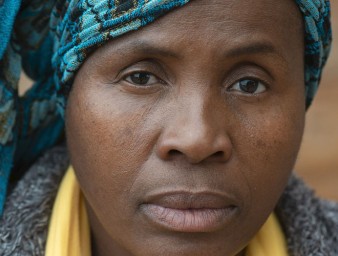Making human rights in business a priority
17 December 2013

“Across the world, people are being displaced as a result of land grabbing for development projects; their livelihoods are being harmed when companies pollute the environment; human rights defenders are being criminalized for their peaceful opposition to development projects; and people, including children, are being forced to work in deplorable conditions,” said the UN Human Rights Chief, Navi Pillay recently during the opening session of the Forum on Business and Human Rights.
“That is why my Office has made human rights in the economic sphere one of its six thematic priorities. We will be devoting increasing resources and attention to this issue,” she said.
During the opening day of the Forum, Nobel Prize winning economist Joseph Stiglitz provided a unique economic perspective on present day issues, highlighting that often businesses pursue self-interest at the expense of basic human rights.
Stiglitz argued that evidence supports the observation that responsible companies on average perform better. “Perhaps it’s because businesses that are more attentive to their broader societal obligations are, in many other ways, better businesses as well.”
The Forum, which was established by the Human Rights Council under the leadership of the UN Working Group on Business and Human Rights, provides a global multi-stakeholder platform that brings together key political and economic actors to identify strategies and tools for the implementation the UN Guiding Principles on Business and Human Rights: the first globally accepted standard on the respective responsibilities of States and businesses for preventing and addressing business-related human rights violations.
“The Human Rights Council took an important step in 2011 with its endorsement of the Guiding Principles. Now it is up to States, international and regional organizations to ensure that they are implemented effectively across the world, in ways that respond to regional challenges and contexts,” said Pillay.
Alexandra Guáqueta, the Chairperson of the UN Working Group on Business and Human Rights, who guides the preparations of the Forum, highlighted the need to scale up efforts. “Participation nearly doubled this year. We now have a clearer picture of human rights due diligence in the various industry sectors and what leverage by companies over business partners and other actors to address adverse impacts can look like. Businesses can be a force for good if the right incentives are there,” she said.
“But there is impatience with impunity,” Guáqueta added. “We need to widen the number of business enterprises and States implementing the Guiding Principles through structured prevention and accountability models, whether by regulation, industry sector pacts, the new generation of multi-stakeholder initiatives, National Action Plans by States, or other means.”
Guáqueta emphasized the need to continue building trust among actors. “The way forward requires enlightened leadership from all sides. It was done before, it is possible again. We have a solid base to build from.”
The three-day Forum is a unique global venue for bringing together a wide range of stakeholders – often with contrasting views and interests – to discuss challenges and opportunities for making progress in preventing and addressing business impacts on human rights.
Participants were given the opportunity to attend a training session on the UN Guiding Principles, as well as hear practical examples from diverse sectors of how businesses are taking steps to address impacts on specific groups, including indigenous peoples and children.
The Forum, which is organized by the UN Human Rights Office, took place from 2-4 December.
17 December 2013




